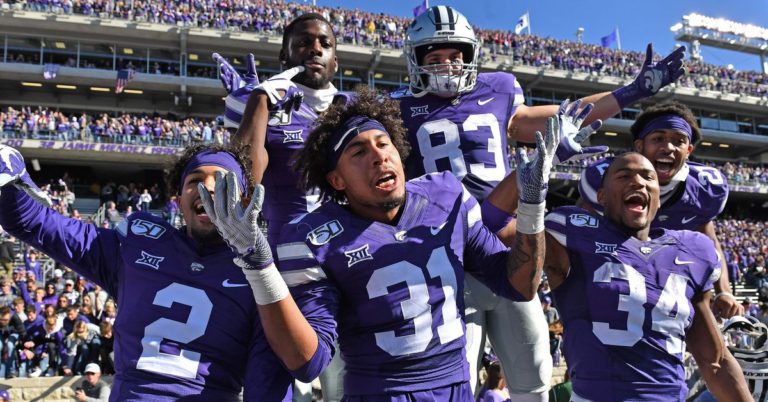

Three academic researchers have published a study they conducted of Outsports stories that shows sports evolving into a welcoming place for out gay, bi and queer male athletes.
Adam J. White, Rory Magrath and Luis Emilio Morales studied 60 coming-out stories of male athletes, mostly in the United States. All of the stories ran on Outsports in 2016. They say in the report that they chose to focus on stories published in 2016 because there was a surge in the number of coming-out stories on Outsports told that year.
The study shows, nearly without fail, a familiar pattern in the stories: Male athletes are afraid to come out to their teammates, but when they do they are nearly universally met with acceptance. The handful of accounts of negative reactions came almost exclusively from places outside of sports, including family members and other classmates.
It’s a pattern we’ve identified at Outsports for years; Now the claim has the backing of an academic study.
“The findings presented in this research further critique the claim that sport is a hostile environment for sexual minorities; there is now a significant body of research on Western sport which challenges this line of reasoning,” the report says. “Further, perpetuating the narrative that sport is homophobic without an impartial body of evidence is, in itself, potentially further traumatic to closeted athletes already concerned about coming-out.”
The study also shows that language considered to be homophobic — e.g., the casual use of gay slurs — does not reflect an actual hatred or dislike of gay people, and that that language is reduced or disappears entirely when a gay teammate comes out due to heightened sensitivity and awareness. In fact, after the athlete comes out the language can be used as a form of supportive banter with the newly out athlete, “a way of them simply being included on the team.”
The upshot? Acceptance of gay teammates in American men’s sports is widespread.
“Indeed, every athlete in the sample described an acceptant and inclusive response from their teammates and, therefore, improved psychological wellbeing,” the study says. “We show that, post-coming-out, homosexually themed language among their teammates either declined, or was increasingly positioned as evidence of ‘gay-friendly banter’.”
The three men who conducted the research are building their careers in this space: White is a lecturer in Sport & Coaching Sciences and an interdisciplinary researcher in Sport, Exercise, Health and Education at Oxford Brookes Univ.; Magrath is an associate professor of Equality and Diversity and a faculty member of Sport, Health and Social Sciences at Solent Univ.; and Morales is a Ph.D. student mostly focused on gender, sport, race, and ethnicity at the Univ. of Winchester.
They claim that the stories told on Outsports can be an even stronger indication of the actual state of homophobia in sports than studies done through polls and interviews conducted by researchers. Because the Outsports stories are told by the athletes themselves, the reader gets a more raw, less-veiled look inside the athletes’ lives without bias.
“This allows athletes greater freedom to discuss the points they perceive as most important, and thus better illustrate their own coming-out experiences and expectations.”
Some have claimed that Outsports intentionally publishes only positive stories, or that only those stories find their way to us. That is false. Many of these stories come to us even before the athletes come out to their teammates, and the results are nearly universally positive. The study addresses this.
“It is possible, of course, that this self-selecting sample may be skewed toward more positive experiences, with participants sharing their experiences with Outsports,” the study says. “But note that Outsports also publish negative coming-out stories, too, even if these are fewer in number.”
While four of the 60 athletes included some form of negative reaction to their coming out from some corner of their lives, that accounted for less than 7% of the athletes, and even they claimed an overall positive coming-out experience.
Not surprising to anyone, the research outlines strong, positive effects coming out has on the gay, bi and queer male athletes themselves.
“Athletes in this research outlined a marked turnaround in their psychological state – from depression and anxiety, to the elation that coming-out provided. Indeed, in these sporting contexts, coming-out was universally associated with greater happiness and self-confidence,” the study says.
You can find more information about the important study here.